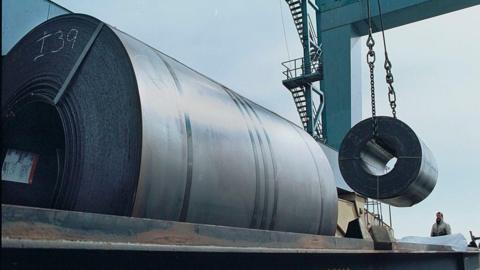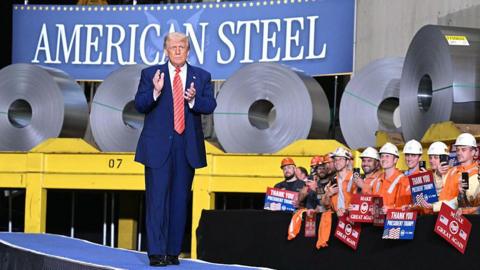US President Donald Trump has signed an order doubling tariffs on steel and aluminium imports from 25% to 50%.
The move hikes import taxes on the metals - key inputs in everything from cars to canned food - for the second time since March.
Trump has said the measures, which come into effect on Wednesday, are intended to secure the future of the American steel industry.
However, critics say the protections could wreak havoc on steel producers outside the US, spark retaliation from trade partners, and come at a punishing cost for American users of the metals.

